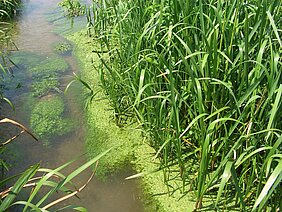Due to climate change, pollution and invasive species, reservoirs and lakes are confronted with a loss of near-natural biodiversity. In order to gain a better understanding of these ecosystems, the IQ Water research project is using modern molecular biological methods and AI-supported models to gain new insights into changes in aquatic ecosystems and enable a well-founded forecast of water quality.
The project is currently developing a comprehensive working concept and is being funded by the German Federal Ministry of Education and Research (BMBF) as part of the FEdA funding initiative for the conservation of biodiversity. Prof. Dr Andreas Tiehm is Head of the Water Microbiology Department at TZW: DVGW-Technologiezentrum Wasser (German Water Centre) and coordinator of the IQ Water project. He recently gave an interview on the aims and content of the project (in German).
Interview with Prof. Dr. Andreas Tiehm on the FONA website
The IQ-Water project in brief
Surface waters such as lakes and reservoirs are complex biological systems with a large biological diversity of different organisms such as bacteria, algae, protozoa, fungi and higher plants and animals. The ecosystem services provided by this biological diversity enable, among other things, the near-natural production of over 12 % of Germany's drinking water. Microorganisms are among the groups of organisms that have been insufficiently studied up to now. Molecular methods have the potential to close this knowledge gap in aquatic biodiversity. The use of AI to analyse biodiversity has hardly been investigated so far. The AI-supported evaluation of data in the IQ Water project is intended to recognise or predict the future development of biodiversity, the proliferation of cyanobacteria or coliform bacteria, the input of faecal contaminants and their origin as well as the occurrence of neobiota at an early stage. The aim is to use the AI-generated forecasts to initiate measures to preserve the natural ecosystem and protect water quality as early as possible once the project has been completed.
Further information
BMBF-fundig initative for the conservation of biodiversity FEdA (in German)
Project site IQ-Wasser

![[Translate to English:] Prüfstelle-Produktprüfung_Teststand Test centre and product testing](/fileadmin/_processed_/0/9/csm_TZW-Karlsruhe_Pruefung_Geraete-Teststand_377188946c.jpg)
























